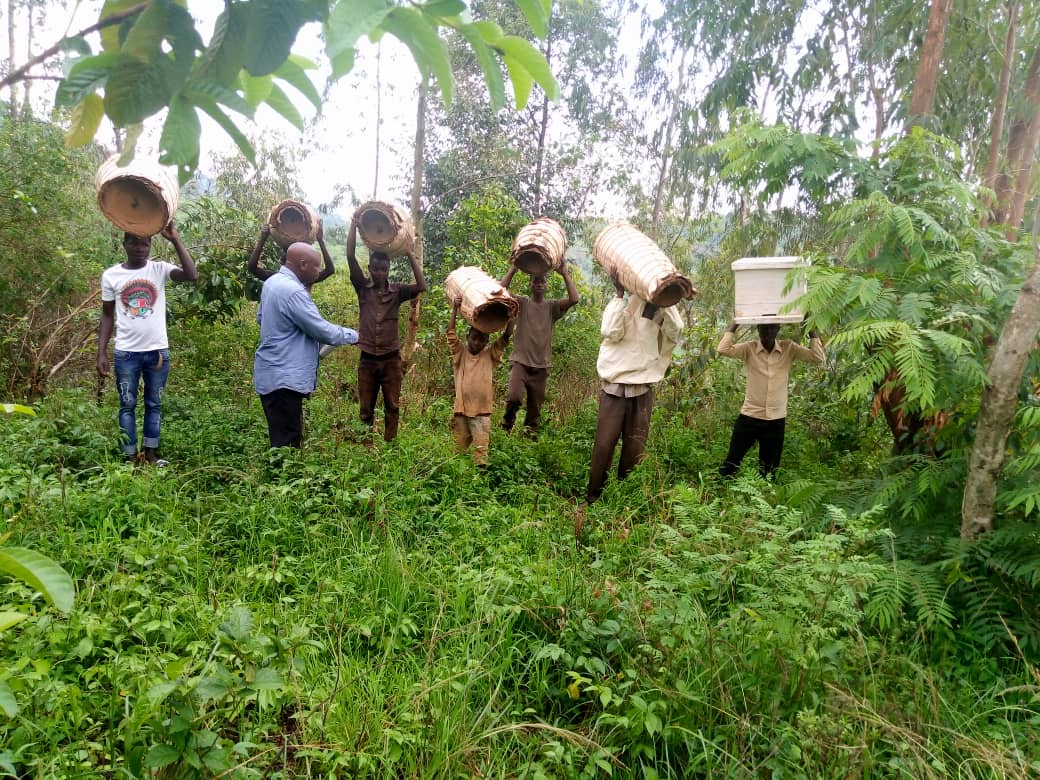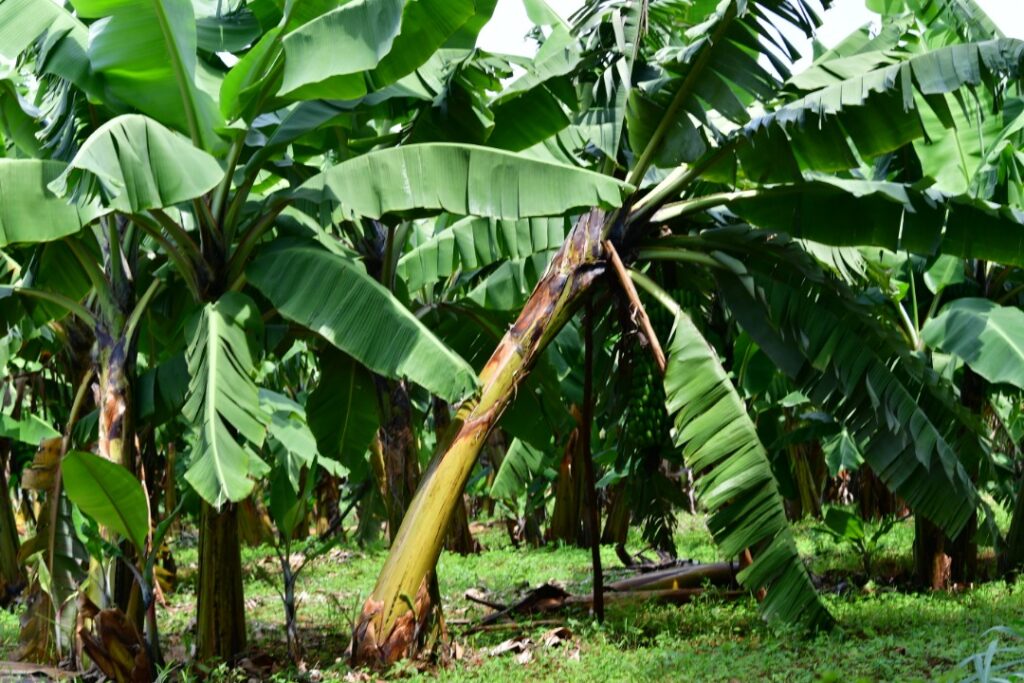Eric Ndagijimana, a-47 year old cultivator, lives at Shari II hill in Bubanza district, Bujumbura province, centre west of Burundi. He has a wife and six children. Apart from cultivating his small piece of land, Mr. Eric does carpentry so as to be able to put food on the table for his family. Despite his efforts in farming, he only relies on a small land.
In Bubanza district, one of the 11 districts of Bujumbura province, according to 2025 new administrative division, there are rampant issues linked to land ownership. Such issues are barriers to food security, as one household can hardly exploit approximately 0.5 ha or less; thus a root cause of poor child wellbeing.
In a bid to compensate his harvests and what he was earning from carpentry, Eric decided to practice beekeeping as his efforts were not bringing much mainly in the dry season. Before joining this program, Eric recalled how his father was able to buy food and meat when he had sold honey in the neighborhood, he got motivated. To Eric, beekeeping was the most rewarding job. As he recall with a smile, his dad was among the rare people at his hill who was able to buy meat, sometimes a whole goat as the family celebrated Christmas. Even tough, beekeeping was bringing some income, it was until 2024 that beekeeping got a new turn. His witness has led to engagement of many other people in the program.
EdSF Burundi introduced improved beekeeping with grouped practitioners into associations as per location in the country. Improved beehives, appropriate equipment as well as trainings were given to beekeepers gathered into beekeeping national federation initiated by the program (EdSF Burundi_ Country Federation_Bees Keeping Farmers).
According to Eric and other beneficiaries, this has revolutionized beekeeping. Opening beehives and follow up of how bees are doing became easier. The bee suits also provide maximum protection for a closer observation and the extractor can maximize honey harvesting without damaging the wax sheet. The revolution is deeper than first thought.
Indeed, in this new way of doing, girls and women are associated. This was inconceivable in traditional beekeeping because an old belief is that women do not approach beehives as they were considered impure during menstruation. Approaching, according to the belief could make bees die or make bees flying away.
Currently, with 50 beehives installed, beneficiaries expect a harvest of 1,500 kg while they were collecting only 80 kg from the traditional beehives. One kg costing around 20,000 to 28,000 Fbu in the community. In July when they plan to extract honey, they expect to earn 112,000,000 Fbu (37,966 $).
In a country where more than 70% of the population live with less than 1$ per day this means a lot. For Alexis Mpawenimana, president of Beekeeping Federation, the future is bright, with such an income, planning and implementing projects becomes easier. We have already started planting fruits like papayas, passion fruits to complement beekeeping”, Alexis says.


